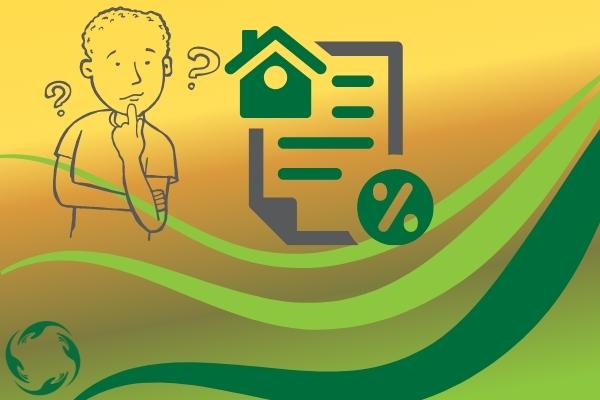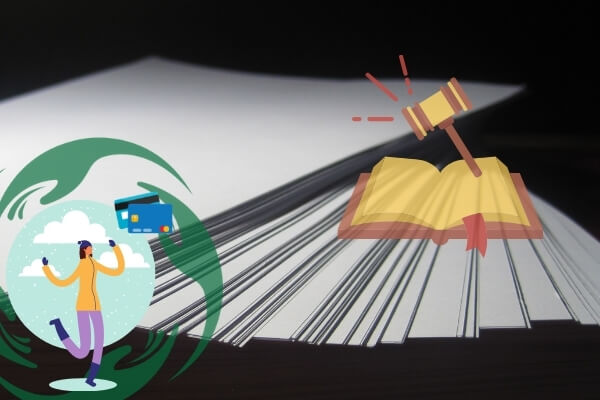There’s a good chance that you haven’t heard of the Credit Contracts and Consumer Finance Act (CCCFA), but it’s an important one! It’s the Act that protects you when you borrow money or buy products or services on credit. So, if you are using a credit card, getting a personal loan, using a store card or have resorted to a payday loan then this is an important read.
The Act requires lenders to always act responsibly and to ensure that you, the borrower, are making informed choices and know what you are agreeing to. There are certain things lenders must tell you when you borrow money. This is called disclosure of information.
For example, lenders must:
- make standard terms and costs of borrowing publicly available via their website or on clearly displayed notices at their premises. This helps borrowers compare the cost of borrowing and contract terms, and to shop around.
- give you important information in writing before you sign an agreement, eg annual interest rate, all fees, how you can cancel, details of their dispute resolution scheme.
Most lenders are responsible and provide the information about the loan etc, and meet these obligations already, but knowing how much your credit is costing you does not stop the lenders from charging fees and interest rates that make it almost impossible for you to repay the loan!! For this reason, the Act has been reviewed and changed.
Some amendments to the Act will come into force from 1st October 2021. You can read about the changes to the Act in more detail here.
Lenders will be working under new prescriptive requirements when assessing the affordability and suitability of loans. Additional registration and compliance will be required to be undertaken by lenders, and the responsible advertising standards also have new regulations.
One recent change to the Act means that lenders can no longer charge a total of more than twice the amount of the original loan (also called the principal).
For example, if you take out a loan of $150 to cover an unexpected bill, the lender can’t charge you more than $300. Previously a $150 loan could end up costing you hundreds more than that if you were charged high interest rates, late payment fees, etc. – borrowers could be paying back a lot more than twice the principal.
That is still a large amount of extra money to be paying off your loan, so it is important that you go into a situation with your eyes open – look out for the ways in which you will incur extra charges. These could be late payment fees, or ironically also early repayment fees!

Can I use my KiwiSaver to Buy a House?
KiwiSaver is primarily for retirement savings. The other cool feature of the KiwiSaver system is that you can use your funds towards the deposit for your first home.

Newsletter May 2023
Kia Ora! In this newsletter: Hot tip of the month - Check your credit report; any inaccuracies could cost you! Did you know - Your bank probably doesn’t really love you…. who knew? First-home buyer tips – Now is as “good as it gets”. Seriously! Links to April...

What documentation do I have to complete to get a mortgage in New Zealand?
We know that mortgage documentation sounds like a dry topic! But knowing in advance the admin you may need to do to get a mortgage can reduce anxiety and make you feel more in control.

Newsletter April 2023
Kia Ora! Thoughts from Elise The start of the new financial year and, for many, the chance for a fresh start.Recovery efforts in the North Island began, and as expected, there are significant decisions to be made in the planning and recovery. There are many lessons...

Is Health Insurance Worth It?
Your health is the most important asset you will ever own. It determines whether you can work and is a massive factor in your lifestyle and relationships. This being so, it’s worth protecting as much as you can.

Your mortgage adviser does more than help you buy a home
We love helping people buy their first home, next home, or investment property that will set them up for the future. But while finding finance is a core part of the service we provide our mortgage clients, it’s not the only important one.

Newsletter March 2023
Kia Ora! Thoughts from Elise The optimistic start to the year seems to have been blown out of the water. Coming straight after catastrophic flooding in the upper North Island, Cyclone Gabrielle blasted through the North Island and left behind the heartbreak of lost...

How Can I Reduce My Credit Card Debt?
If you’re struggling to reduce your credit card debt, you’re not alone. There are so many Kiwis out there with high credit limits that are maxed out every month.

Newsletter February 2023
Kia Ora! Thoughts from Elise Sending aroha to all the communities and families affected by recent flooding. It’s going to take a while for the damage to be fully known and then rectified, kia kaha everyone. I took time to ease back into it all after a couple of...

How Do I Refinance My Mortgage?
Mortgage refinance is just another name for moving your mortgage to a different lender. Not to be confused with a restructure, which is just changing the structure of your mortgage with your current lender.

